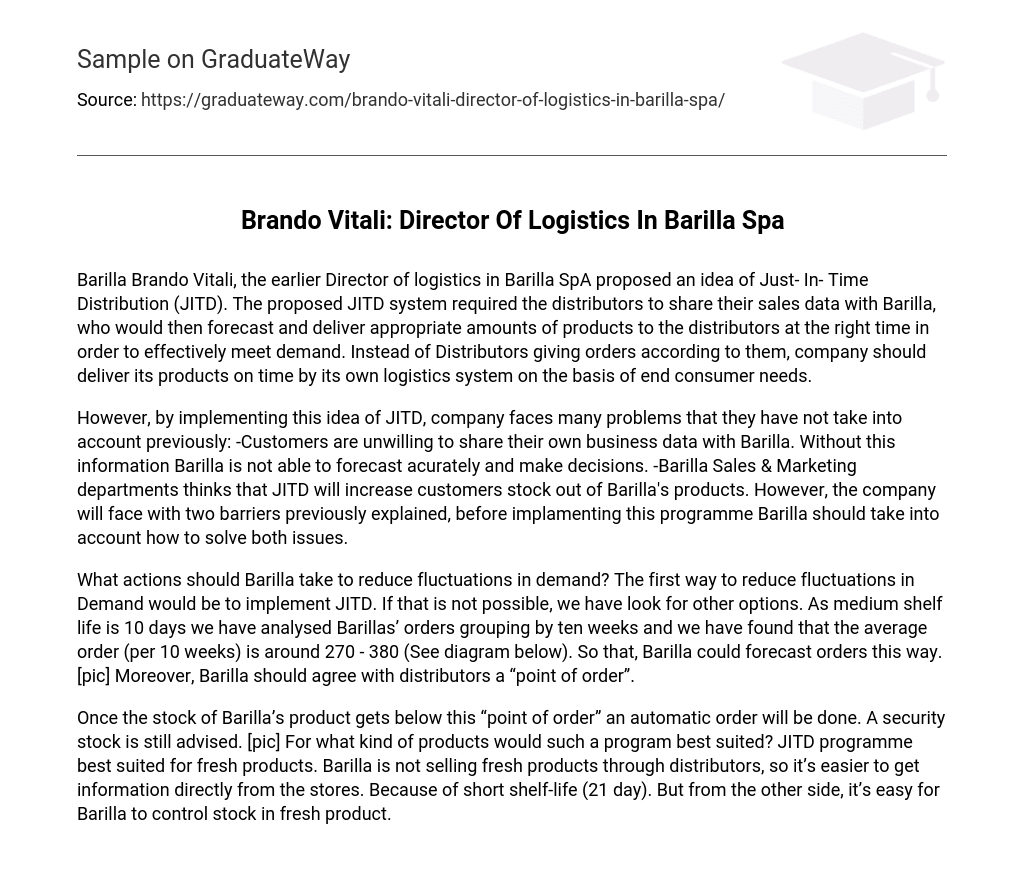Barilla Brando Vitali, the earlier Director of logistics in Barilla SpA proposed an idea of Just- In- Time Distribution (JITD). The proposed JITD system required the distributors to share their sales data with Barilla, who would then forecast and deliver appropriate amounts of products to the distributors at the right time in order to effectively meet demand. Instead of Distributors giving orders according to them, company should deliver its products on time by its own logistics system on the basis of end consumer needs.
However, by implementing this idea of JITD, company faces many problems that they have not take into account previously: -Customers are unwilling to share their own business data with Barilla. Without this information Barilla is not able to forecast acurately and make decisions. -Barilla Sales & Marketing departments thinks that JITD will increase customers stock out of Barilla’s products. However, the company will face with two barriers previously explained, before implamenting this programme Barilla should take into account how to solve both issues.
What actions should Barilla take to reduce fluctuations in demand? The first way to reduce fluctuations in Demand would be to implement JITD. If that is not possible, we have look for other options. As medium shelf life is 10 days we have analysed Barillas’ orders grouping by ten weeks and we have found that the average order (per 10 weeks) is around 270 – 380 (See diagram below). So that, Barilla could forecast orders this way. [pic] Moreover, Barilla should agree with distributors a “point of order”.
Once the stock of Barilla’s product gets below this “point of order” an automatic order will be done. A security stock is still advised. [pic] For what kind of products would such a program best suited? JITD programme best suited for fresh products. Barilla is not selling fresh products through distributors, so it’s easier to get information directly from the stores. Because of short shelf-life (21 day). But from the other side, it’s easy for Barilla to control stock in fresh product.





